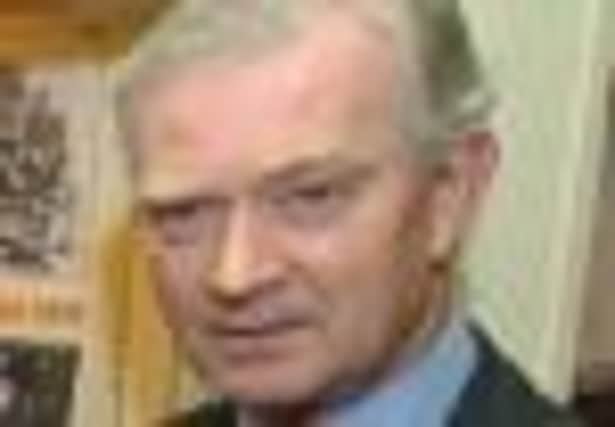UK troops are ‘lions led into battle by donkeys’


Major General Sir Evelyn Webb-Carter, the former commander of the Queen’s Household Cavalry and Guards and the last colonel of the Duke of Wellington’s Regiment before it was amalgamated into the Yorkshire Regiment in 2006, said the legacy of the past decade would be seen as one of betrayal of the Armed Forces.
And as Yorkshire prepares for its biggest deployment since the Second World War, with all four battalions braced to serve in Afghanistan in 2012, Major General Webb-Carter warned there would be a huge challenge in supporting the tens of thousands of soldiers leaving the Army in the coming years following the savage cuts by the Ministry of Defence (MoD).
Advertisement
Hide AdAdvertisement
Hide Ad“There will be big question marks about the political direction,” said Major General Webb-Carter, who served 37 years in the Army and retired last month as chief executive of ABF – The Soldiers’ Charity after nine years at the helm.


“There will be a feeling that the Army was betrayed. They were made to do all of these things and actually they were done on a pretty spurious reasoning.
“I think the case for going to Afghanistan in the first instance was a sound one, but the conduct of the campaign has probably been mishandled and that is probably more at the military political level rather than at the operational level.
“It has been an absolute disaster to have two campaigns running concurrently, because it was beyond the resources of the Army.
Advertisement
Hide AdAdvertisement
Hide Ad“We landed up by doing neither very well, when we could have done one and succeeded.
“Fighting two campaigns like that at the same time was actually strategic lunacy. These things are decided by politicians and that is grand strategy.”
Britain is planning a withdrawal of its troops from Afghanistan by the end of 2014 and is training up the Afghan security forces in the hope of providing lasting peace in a country which has been ravaged by war over the past few decades.
Meanwhile, the MoD is in the process of cutting 25,000 armed forces personnel and 29,000 civilian staff by 2015, in the biggest round of cuts to the military since the end of the Cold War.
Advertisement
Hide AdAdvertisement
Hide AdThere have been nearly 400 UK military deaths in Afghanistan, while last November was the region’s bloodiest month so far during the conflict.
As the casualty toll continues to rise, Armed Forces charities are reporting a major increase in the number of soldiers and their families in need of support.
“There is a real rough justice in this,” said Major General Webb-Carter, who calls the scale of the MoD cuts a great mistake.
“The guys that have loyally done their jobs are the ones that have had to pay the price for us getting the mathematics wrong.
Advertisement
Hide AdAdvertisement
Hide Ad“I think the quality of the soldier will come through as being high quality, hugely tolerant, and having paid a great sacrifice.
“The scale of this conflict is on a completely different quantum. At one stage, there was a 15 per cent chance that if you were going out on patrol, you would be either killed or injured.
“What I worry about, is the sacrifices that have been made and to think that is wasted is more than I can really bear. I think as the opposition know perfectly well we are going, that aids their cause and doesn’t help us.
“It’s the old adage of the watch.
“We have the watch and they have the time; goodness knows what will happen post 2014.”
The Ministry of Defence declined to comment.